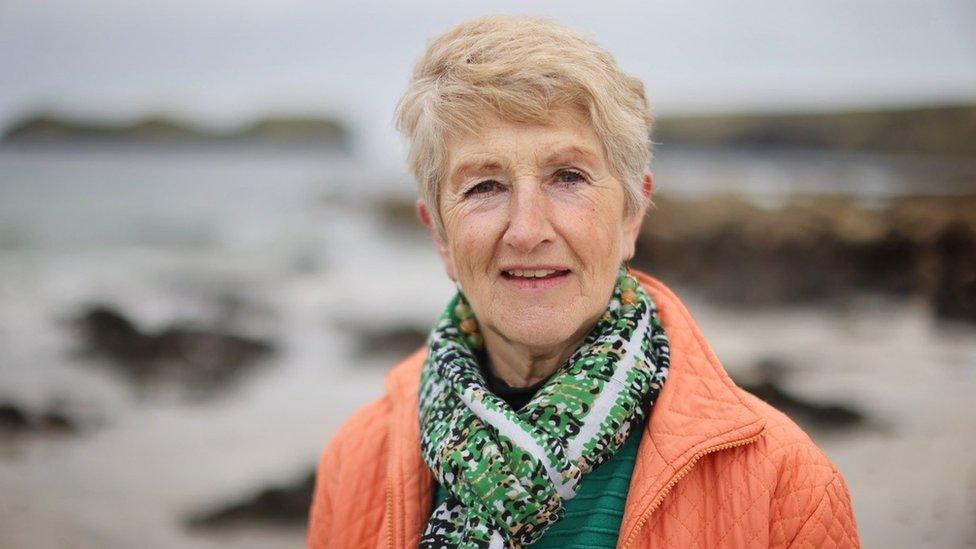Scottish council elections 2022: The wards where there is no contest
- Published

Voters in Scotland are set to decide who will run Scotland's 32 councils for the next five years - or rather, most of them will.
Seats in eight out of the 355 council wards are uncontested because not enough candidates have come forward.
Votes can still be cast, but it means that those few candidates who threw their hats into the ring will be automatically re-elected or elected for the first time.
Why does this happen?
Scotland's council elections are held using the Single Transferable Vote (STV) under which voters rank their local candidates in order of preference - one, two, three, etc.
Three or four councillors are elected in the majority of wards while candidates with too few votes are eventually eliminated from the count and their votes transferred in accordance with their supporters' second and subsequent preferences.
But in three wards in Western Isles, two wards in Shetland, one in Highland, one in Moray and one in Inverclyde, there are only two or three candidates.
The councillors standing in these wards will be automatically elected at 11:00 on election day, 5 May.
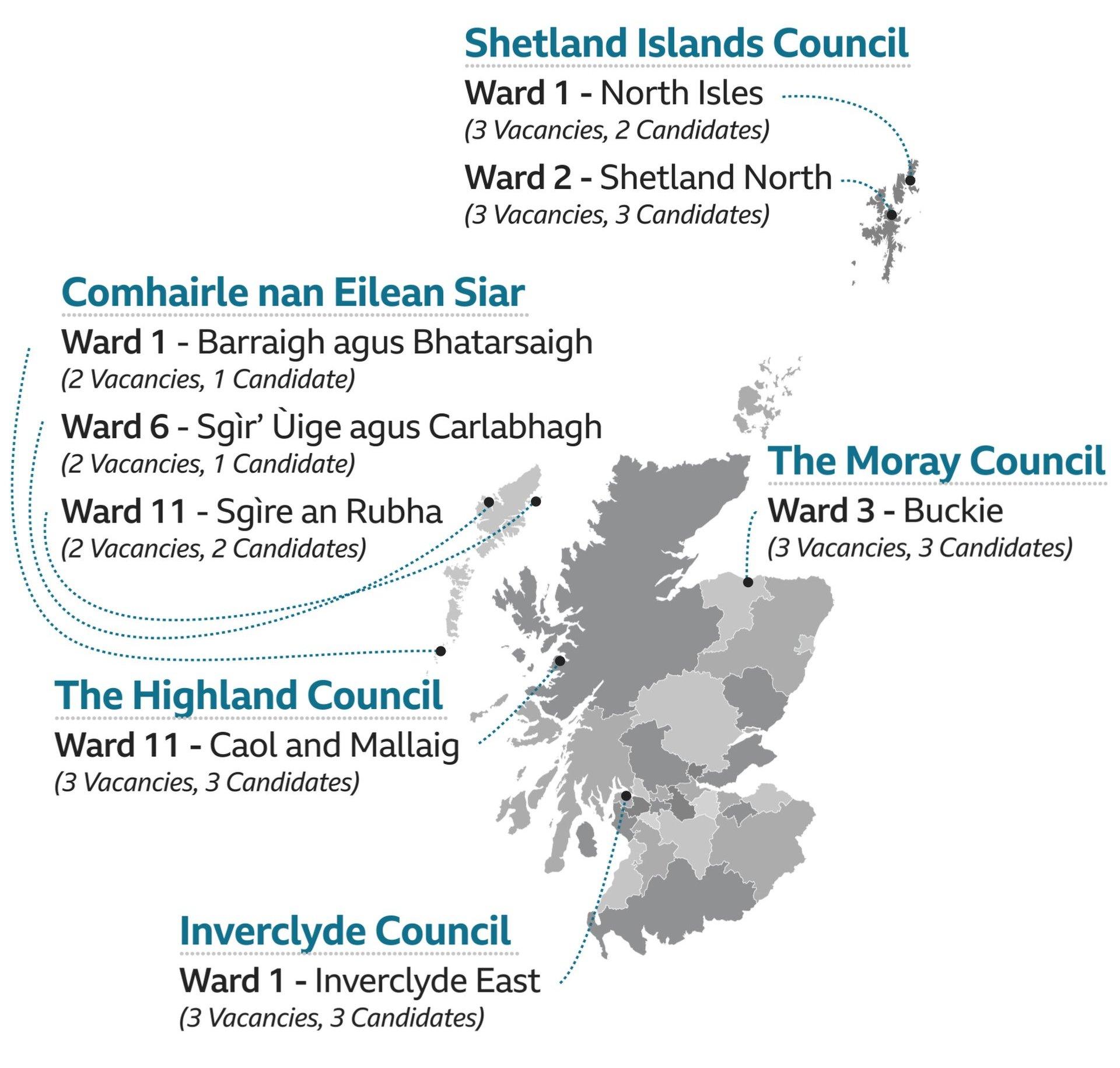
There are three wards where there are fewer candidates than vacancies - two in Comhairle nan Eilean Siar and one in Shetland.
When those vacancies aren't filled on election day, by-elections will be triggered.
According to the Electoral Reform Society (ERS), the reasons Scotland has uncontested seats are largely to do with unique geographic factors, as well as recent changes in ward boundaries.
Legislation passed by the Scottish Parliament in 2018 allowed for the creation of one and two-member wards in the six council areas that include inhabited islands - and the recent redrawing of ward boundaries has led to six two-member wards on Comhairle nan Eilean Siar, and one on Shetland.
The ERS's Willie Sullivan said there was an argument that sticking to "strict mathematical formulas" to decide how many councillors should represent a portion of the population leads to problems with representation.
Frequently island areas will have an independent councillor known well by the community, therefore parties will not bother contesting these seats, he said.
However, he added that under STV, Scotland still had a far lower proportion of uncontested seats than elsewhere in the UK which largely uses the First Past the Post (FPTP) system.
In Wales, which uses FPTP, more than 100,000 people will not get to cast a vote in Thursday's election because only one candidate stood in their ward.
Mr Sullivan said: "No electoral system is perfect, they all come with problems and uncontested seats is one of the problems you have when people don't feel able to stand.
"It's an issue of people not wanting to put themselves forward and not wanting to have competition. Systems either magnify or mitigate, and before STV we have much more uncontested seats, now we're down to 1.7% of seats in this election whereas in Wales it's 6% which is a democratic disaster."
I'd stand myself - but it's too expensive
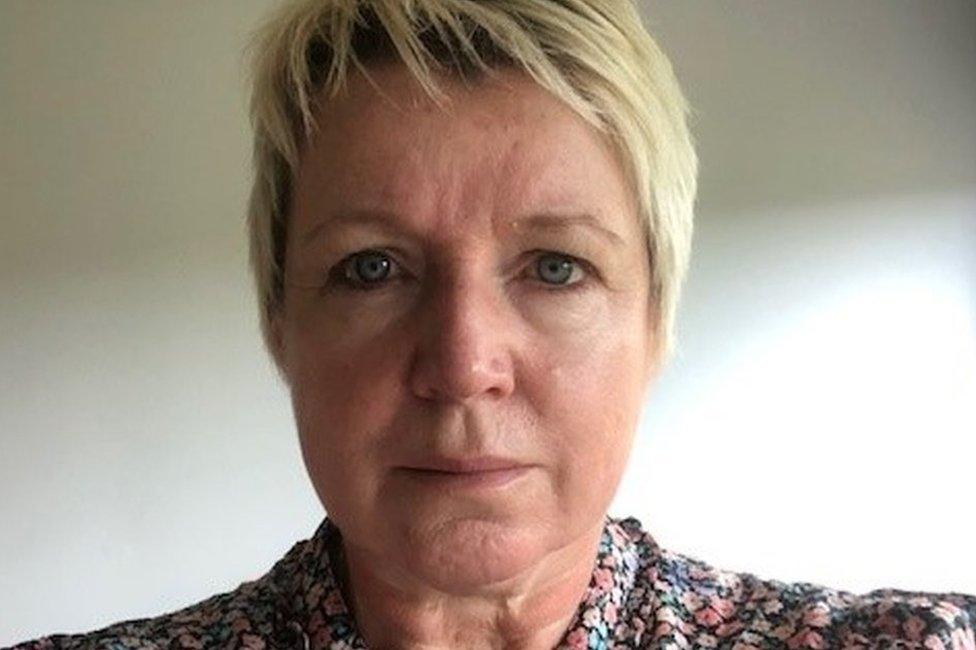
Caroline Jackson looked into becoming a councillor herself - but said the process was too expensive
Retired business owner Caroline Jackson moved to the Highlands from East Anglia four years ago for a different pace of life.
Her home in Morar comes under Caol and Mallaig ward - an area renowned for its white beaches and sand dunes.
All three councillors who had represented the ward are not standing again, with three new faces being elected by default on 5 May.
Caroline looked at applying to become a councillor herself - but said the process was too expensive for anyone who wanted to be independent.
She is passionate about issues that impact her picturesque community, particularly tourism, traffic management and littering - but says she has no idea what is important to her incoming representatives.
"We haven't seen any literature because there's been no canvassing," she said. "I think there's a real lack of understanding about what a councillor does here.
"We don't even know if they're any good. Because we're a big ward geographically we have very different needs - from the social isolation in the croft land through to housing issues in Coul."
'People don't want to step into the boys' club'
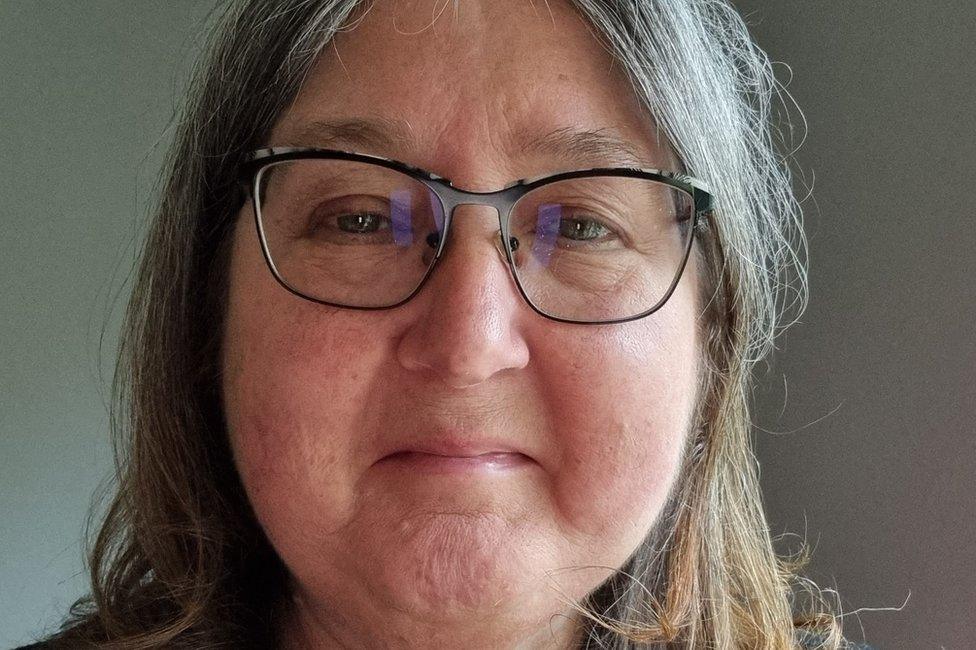
Karen Bynoe says women in the area might feel put off standing as a councillor as all the candidates are men
Childminder Karen Bynoe has lived in affluent Kilmacolm - in the Inverclyde East ward - for about 35 years. The ward also covers parts of Port Glasgow which are among the most deprived areas in Scotland., external
The 59-year-old said she lost interest in researching the three candidates that will be re-elected to their posts when she heard her vote would ultimately not make a difference.
"I think it's wrong, you should have an option," she said. "The trouble also is if you're from Kilmacolm you don't necessarily know the needs of people from Port Glasgow."
Asked why she thought more people didn't apply to become councillors, Karen said many people did not have the time - but she thought women have perhaps been put off as all the current candidates in Inverclyde East are men.
She added: "We've got councillors who have been here for years - they work hard for the community of Kilmacolm but maybe people don't want to step into the boy's club because they'd be wasting their time."
Related topics
- Published2 May 2022
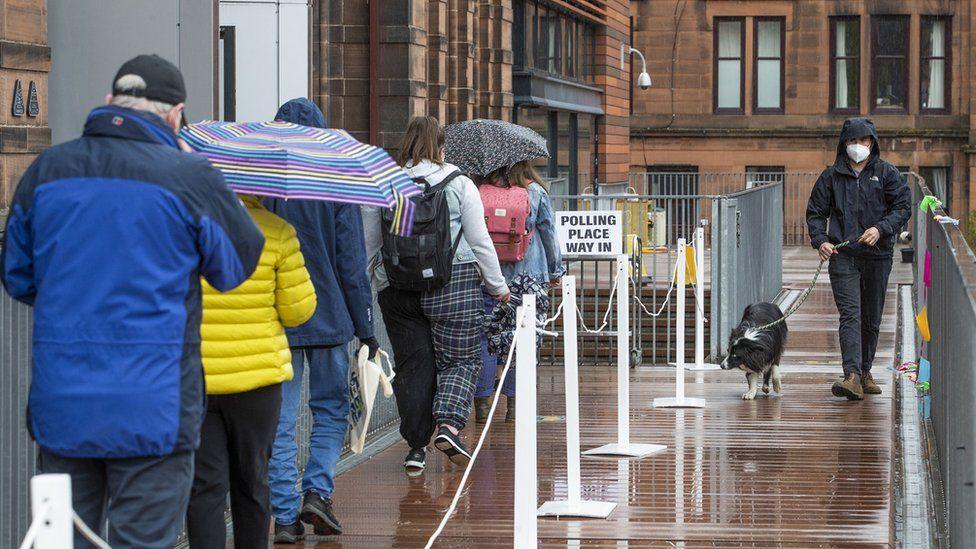
- Published30 April 2022
